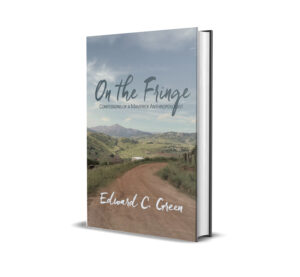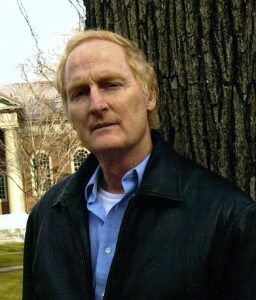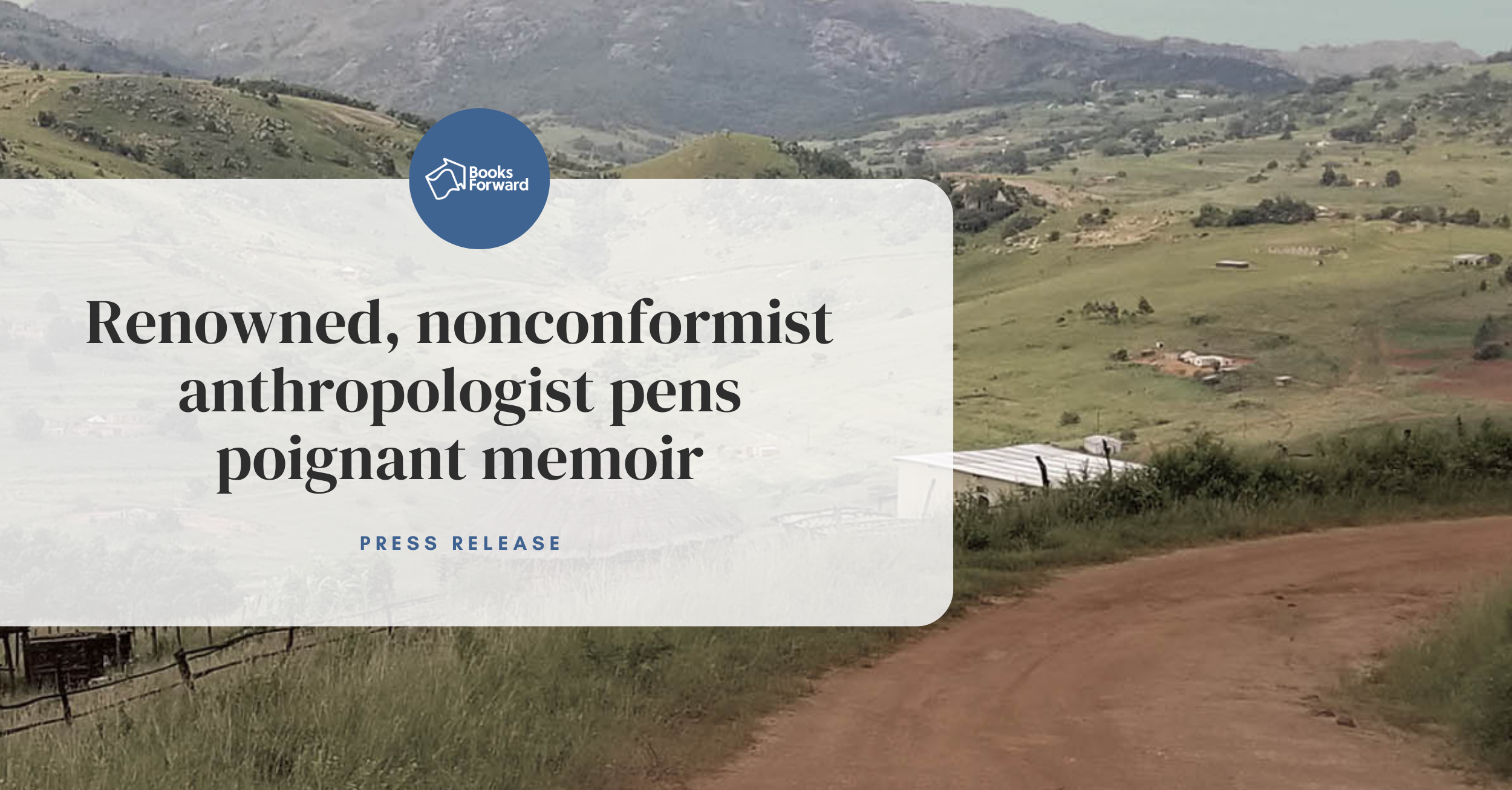A remarkable account of public health advocacy in developing nations interwoven with vivid details of a rich, adventurous life
 WASHINGTON, DC – Medical anthropologist, former Harvard AIDS Prevention Project director, and former member of the Presidential Advisory Council on HIV/AIDS bares his personal and professional adventures as a rebel researcher and intrepid traveler in his stunning memoir, “On the Fringe: Confessions of a Maverick Anthropologist” (Black Rose Writing, October 19th, 2023).
WASHINGTON, DC – Medical anthropologist, former Harvard AIDS Prevention Project director, and former member of the Presidential Advisory Council on HIV/AIDS bares his personal and professional adventures as a rebel researcher and intrepid traveler in his stunning memoir, “On the Fringe: Confessions of a Maverick Anthropologist” (Black Rose Writing, October 19th, 2023).
At a young age, Edward “Ted” Green rejected his privileged upbringing and was considered the “black sheep” of his elite family. Eventually turning away from academia, Green pursued applied field research to prevent infections from HIV, cholera, and other diseases found especially in developing countries across the globe, beginning in Southern and Eastern Africa and eventually across the entire globe. Green takes the reader on an intimate and thrilling journey through diverse corners of the globe, giving on-the-ground insight into the world’s most fascinating cultures, such as the Suriname Maroons (descendants of escaped enslaved Africans in the Amazon rainforest), “spirit mediums” in Nigeria, sex workers in Tanzania, Shaolin masters in China, and Samaritans in Palestine.
With vulnerability and candor, Green also reflects on his notable career as an anthropologist: how he helped transform public health initiatives while battling periodic anxiety and depression and deep-seated Impostor Syndrome. He underscores the importance of outsiders understanding local, indigenous knowledge and wisdom as crucial tools in developing public health programs. He also delves into paranormal phenomena, both his own as well as those he encounters in countries like Nigeria.
Green’s memoir is a deeply moving, expansive account of his adventurous life as a self proclaimed rebellious anthropologist– and his uncommonly fearless approach will encourage others to dig more deeply and honestly into what it means to live an authentic, boundless life.
“On the Fringe: Confessions of a Maverick Anthropologist”
Edward Green | October 19th, 2023 | Black Rose Writing | Memoir
Print | 9781685132965 | $22.95
 EDWARD GREEN: is a retired American medical anthropologist, who has served as a senior research scientist at the Harvard Center for Population and Development Studies, later becoming the director of the AIDS Prevention Research Project. He is currently Research Professor at George Washington University. Green was appointed a member of the Presidential Advisory Council on HIV/AIDS (2003-2007) and served in the Office of AIDS Research Advisory Council for the US-based National Institutes of Health (2003-2006).
EDWARD GREEN: is a retired American medical anthropologist, who has served as a senior research scientist at the Harvard Center for Population and Development Studies, later becoming the director of the AIDS Prevention Research Project. He is currently Research Professor at George Washington University. Green was appointed a member of the Presidential Advisory Council on HIV/AIDS (2003-2007) and served in the Office of AIDS Research Advisory Council for the US-based National Institutes of Health (2003-2006).
Prior to his retirement, Green was not only a pioneer in the field of anthropological research on Africa’s indigenous healers, “witch-doctors” in colonial lingo, but he’s also considered a maverick in developing public health programs based on collaboration between African indigenous healers and western-styled biomedical personnel. He has guided such programs in Mozambique, Swaziland, South Africa, and Nigeria. His maverick status was confirmed when he was one of the first voices to argue against the entrenched Western condoms/testing paradigm of AIDS prevention, proposing instead a simple behavior-based model he discovered operating in Uganda, locally known as the Zero Grazing Campaign.
Dr. Green has been asked to testify in Congress 5 times and he has served on multiple boards of nonprofit organizations. His fieldwork notes, photographs, and tape recordings from his work with the Suriname Maroons, and also from work in several other cultures and countries, have been archived at the Smithsonian’s National Anthropological Archives, near Washington DC. He was profiled in Forbes Magazine in 2009. He is married and currently lives in Washington DC and Maine.
In an interview, Edward Green can discuss:
- How his upbringing in his highly influential family aided in his successful career as a medical anthropologist
- His decision to depart from academia in order to directly advocate for others through his anthropological efforts
- How his career positioned him to become one of the leading experts in AIDS/HIV treatment and prevention in developing nations such as South and East Africa and the Middle East
- His time working on high profile public health committees including a President’s Advisory Council on HIV/AIDS in 2003
Advanced Praise for “On the Fringe”
 “[On the Fringe is] a deeply moving, reflective, and indeed soul-baring account of his prominent family’s history and its far-reaching effects on his life’s extraordinary journey… Green’s uncommonly fearless approach to his autobiography may encourage other professionals to dig deeper and more honestly.”
“[On the Fringe is] a deeply moving, reflective, and indeed soul-baring account of his prominent family’s history and its far-reaching effects on his life’s extraordinary journey… Green’s uncommonly fearless approach to his autobiography may encourage other professionals to dig deeper and more honestly.”
–Charles Good, Professor emeritus at Virginia Polytechnic and State Institute
“In this equally disturbing and uplifting book, Green lays bare the self-doubt that dogged his decades of high-powered and highly effective public health consulting… in this unique autobiography, Green’s clear writing about his peripatetic career is yet another of his many contributions to the social science canon.”
–H. Russell Bernard, Professor emeritus of anthropology, University of Florida; Director, Institute for Social Science Research at Arizona State University, recipient of the Franz Boas Award (2003), member of the National Academy of Sciences.
An Interview with
Edward Green
You have self-identified that you struggle with impostor syndrome even though you have had an immensely successful career. What inspired you to write this memoir?
I speculate in my book that this goes back to my expulsion from an elite boarding school at age 15. My mother seemed traumatized by this and reminded me quite often, accelerating after age 15, that she considered me a failure and that indeed, she saw nothing but failure in my future. I was rebellious as a youth and liked to get drunk and hang out with undesirable kids. Yet part of me wanted to prove my mother wrong. As I began to take off at my career, I always felt deep down that I really was a failure, a fraud, and that the day would come when my colleagues or the general public would expose me as a total imposter.
What was it like to be regarded as the “black sheep” of your highly successful family? Did that contribute to your accomplishments throughout your career?
I come from a long line of successful people, especially on my mother’s blue-blooded side of the family. I was undoubtedly a difficult child, one who today would probably be diagnosed hyperactive. My mother, backed up by my less insistent father, had my whole life planned out for me: Groton school, then Yale (my father’s School), then an Episcopal Bishophood or becoming a professor at an Ivy League school. I rebelled against all that and went out of my way to forge my own path. I think I told my mother once that I was starting my sociological research with the criminal class, then I would slowly work my way up to her class. But I was aware as I started achieving (unconscious?) career goals that I was gradually turning into almost exactly the son my mother planned for.
Why did you choose to leave academia in order to pursue anthropological advocacy, particularly for folks living in developing countries such as South and East Africa and the Middle East?
This question is quite easy to answer because there had been a great overproduction of PhDs in the social sciences and humanities by the mid-1970s, meaning there were few academic jobs even available. My mentor Russ Bernard suggested that I do a postdoc that he knew about at Vanderbilt University and then go to Africa and write a few peer-reviewed articles about wherever it was I went. Then I would be much more marketable in Academia. But I took to applying anthropology outside “the academy” and I almost never looked back. Then, rather late in my career, I learned about postdoc fellowships at Harvard for people in “mid-career” with important ideas about public health. I applied and was accepted to the Takami program, and then was asked to stay on as a senior research scientist. But wait a second: me, a Harvard scientist? I felt like an imposter, for real this time!
How did you feel after you decided that prevailing efforts at AIDS prevention were ineffective and that your findings and ideas would be anathema to most who worked in AIDS?
When I began to criticize the prevailing paradigm in AIDS prevention, the belief was that condoms (along with testing) were the best means of HIV prevention. Those of us who were working in Africa should have caught on to the fallacy of the belief that greater availability of condoms would translate into lower HIV infection rates. I kept expecting someone else to point this out to the major Western AIDS prevention agencies and organizations. But no one did, and so I started my crusade against these misguided beliefs.
My own doubts began in 1993 when I spent a brief consultancy examining the Ugandan AIDS prevention program in-country. This program was developed largely by Ugandans themselves, without the dubious benefit of Western input. Then in 1998 I went back to Uganda, the only country at the time where HIV infection rates were falling. The World Bank hired me to look at and identify what seemed to be working in AIDS prevention. I concluded that it was partner reduction, or not having multiple concurrent sexual partners. But no one wanted to hear this (except Africans.) I was jumped on by critics who said, Green is now promoting “abstinence-only!” Some of my colleagues didn’t want to be associated with me anymore. I can’t pretend this didn’t hurt.
What do you hope that readers will learn and take away from reading your memoir?
As I say in my book, I have trepidation about revealing so much of myself. I have encountered few memoirs by science professionals that delve into career setbacks, disastrous job interviews, fears and failures, anxiety and depression, deeply rooted feelings of being a fraud, an imposter. Such memoirs usually just list one career success after another. I hope that this book might be useful for especially younger people entering public health, anthropology, international development, or allied fields in order to know about both my internal and external struggles and not feel so alone, different, and isolated if they have experienced life events (failures, setbacks) and feelings like my own.

A former award-winning journalist with national exposure, Marissa now oversees the day-to-day operation of the Books Forward author branding and book marketing firm, along with our indie publishing support sister company Books Fluent.
Born and bred in Louisiana, currently living in New Orleans, she has lived and developed a strong base for our company and authors in Chicago and Nashville. Her journalism work has appeared in USA Today, National Geographic and other major publications. She is now interviewed by media on best practices for book marketing.


